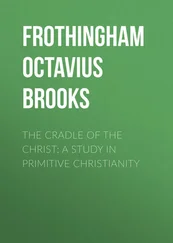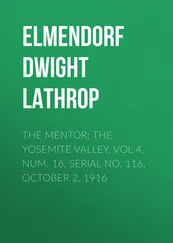Anne Blunt - A Pilgrimage to Nejd, the Cradle of the Arab Race. Vol. 1 [of 2]
Здесь есть возможность читать онлайн «Anne Blunt - A Pilgrimage to Nejd, the Cradle of the Arab Race. Vol. 1 [of 2]» — ознакомительный отрывок электронной книги совершенно бесплатно, а после прочтения отрывка купить полную версию. В некоторых случаях можно слушать аудио, скачать через торрент в формате fb2 и присутствует краткое содержание. Жанр: foreign_antique, foreign_prose, Путешествия и география, на английском языке. Описание произведения, (предисловие) а так же отзывы посетителей доступны на портале библиотеки ЛибКат.
- Название:A Pilgrimage to Nejd, the Cradle of the Arab Race. Vol. 1 [of 2]
- Автор:
- Жанр:
- Год:неизвестен
- ISBN:нет данных
- Рейтинг книги:4 / 5. Голосов: 1
-
Избранное:Добавить в избранное
- Отзывы:
-
Ваша оценка:
- 80
- 1
- 2
- 3
- 4
- 5
A Pilgrimage to Nejd, the Cradle of the Arab Race. Vol. 1 [of 2]: краткое содержание, описание и аннотация
Предлагаем к чтению аннотацию, описание, краткое содержание или предисловие (зависит от того, что написал сам автор книги «A Pilgrimage to Nejd, the Cradle of the Arab Race. Vol. 1 [of 2]»). Если вы не нашли необходимую информацию о книге — напишите в комментариях, мы постараемся отыскать её.
A Pilgrimage to Nejd, the Cradle of the Arab Race. Vol. 1 [of 2] — читать онлайн ознакомительный отрывок
Ниже представлен текст книги, разбитый по страницам. Система сохранения места последней прочитанной страницы, позволяет с удобством читать онлайн бесплатно книгу «A Pilgrimage to Nejd, the Cradle of the Arab Race. Vol. 1 [of 2]», без необходимости каждый раз заново искать на чём Вы остановились. Поставьте закладку, и сможете в любой момент перейти на страницу, на которой закончили чтение.
Интервал:
Закладка:
On the whole, we went away much impressed with Midhat, though not as we had hoped. He had astonished us, but not as a wise man. To speak seriously, one such reforming pasha as this does more to ruin Turkey than twenty of the old dishonest sort. Midhat, though he fails to line his own purse, may be counted on to empty the public one at Damascus, as he did at Bagdad, where he spent a million sterling on unproductive works within a single year. As we wished him good-bye, we were amused to notice that he retained Mr. Siouffi, the manager of the Ottoman Bank, who had come with us, with him for a private conference, the upshot of which was his first public act as Governor of Syria, the raising of a loan. 4
CHAPTER II
“This shadowy desert, unfrequented woods,
I better brook than flourishing peopled towns.”
We spent a week at Damascus, a week not altogether of pleasure, although it was to be our last of civilised life. We had an immense number of things to buy and arrange and think over, before starting on so serious a journey as this, which we knew must be very unlike the pleasure trip of last year. We could not afford to leave anything to chance with the prospect of a three months’ wandering, and a thousand miles of desert, where it was impossible to count upon fresh supplies even of the commonest necessaries of life. Jôf, the first station on our road, was four hundred miles off, and then we must cross the Nefûd, with its two hundred miles of sand, before we could get to Nejd. The return journey, too, to the Persian Gulf, would have to be made without coming to anything so European as a Turkish town. Nobody could tell us what supplies were to be had in Nejd, beyond dates and corn. Mr. Palgrave’s account of Jebel Shammar was, in fact, the only guide we had to go on, and its accuracy had been so much doubted that we felt obliged to take into consideration the possibility of finding the Nejd towns mere oases, and their cultivation only that of the date.
Mohammed, less “insouciant” than most of his countrymen are on such matters, now made himself most useful, spending many hours in the bazaars with Wilfrid, as I did with the cook and the camel-man; and being a town Arab and a trader born, he saved us an infinity of trouble and time, and no few mejidies.
They began by choosing a complete suit of Bedouin clothes for Wilfrid, not exactly as a disguise, for we did not wish, even if we could have done so, not to pass for Europeans, but in order to avoid attracting more notice than was necessary on our way. The costume consisted of a striped silk jibbeh or dressing-gown worn over a long shirt, a blue and white abba of the kind made at Karieteyn, and for the head a black kefiyeh embroidered with gold which was fastened on with the Bedouin aghal, a black lamb’s-wool rope. Mohammed had brought with him a sword which had belonged to his grandfather, a fine old Persian blade curved like a sickle. He gave it to Wilfrid and received in return a handsome weapon somewhat similar but silver-mounted, which they found in the bazaar. Thus rigged out, for Mohammed too had been reclothed from head to foot (and he much required it), they used to sally out in the town as two Bedouin gentlemen. Wilfrid by holding his peace was able to pass with the unwary as an unconcerned friend, while Mohammed did the bargaining for cloaks, kefiyehs, and other articles suitable as presents to the Sheykhs whose acquaintance we might make. Mohammed was an expert in driving a hard bargain and knew the exact fashion in vogue in each Bedouin tribe, so that although his taste did not always quite agree with ours, we let him have his way. The only mistake he made, as it turned out, was in underestimating the value of gifts necessary in Haïl. Not one of us had the least idea of the luxury existing in Nejd, and Mohammed, like most of the northern Arabs, had heard of Ibn Rashid only as a Bedouin Sheykh, and fancied that a red cloth jibbeh would be the ne plus ultra of magnificence for him, as indeed it would have been for an Ibn Shaalan or an Ibn Mershid. We had, however, some more serious presents than these to produce, if necessary, in the rifles and revolvers we carried with us, so that we felt there was no real danger of arriving empty-handed.
The purchases which it fell to my share to make, with the assistance of Abdallah and the cook, were entirely of a useful sort, and do not require a detailed description here. As to dress, it was unnecessary for me to make any change, save that of substituting a kefiyeh for a hat and wearing a Bedouin cloak over my ordinary travelling ulster. Hanna and Abdallah were both of them masters in the art of haggling, and vied with each other in beating down the prices of provisions. Dates, flour, burghul (a kind of crushed wheat, which in Syria takes the place of rice), carrots, onions, coffee, and some dried fruit were to be the mainstay of our cooking, and of these we bought a supply sufficient to last us as far as Jôf. We had brought from England some beef tea, vegetable soup squares, and a small quantity of tea in case of need. We had agreed to do without bulky preserved provisions, which add greatly to the weight of baggage, and that as to meat, we would take our chance of an occasional hare or gazelle, or perhaps now and then a sheep.
All began well. Our servants seemed likely to turn out treasures, and we had no difficulty in getting a couple of Agheyls to start with us as camel drivers. We thought it prudent to keep our own counsel as to the direction we intended to take, and it was generally supposed that Bagdad was to be our first object. Only Mohammed and Hanna were informed of the real design, and them we could trust. Not but what Hanna had occasional fits of despondency about the risk he ran. He did not pretend to be a hero, he had a wife and children to whom he was sincerely attached, and he felt, not quite wrongly, that Central Arabia was hardly the place for one of his nation and creed. He came to us, indeed, one morning, to announce his intention of returning home to Aleppo, and he required a good deal of humouring before he recovered his spirits; but I do not think that he ever seriously intended to desert us. He had come all the way from Aleppo to join us, and, besides, the companionship of the young giant he called his “brother,” who was to share his tent, reassured him. Once started, we knew that he would bear patiently all that fortune might inflict.
By the 11th the necessary preparations had been made, and we were ready to start. As a preliminary, we moved into a garden outside the town with our camels and our mares, so as to be at liberty to go off any morning without attracting notice and in the direction we might choose. It was generally believed in Damascus that we intended going to Bagdad, and we had made up our minds to start in that direction, partly to avoid questions, and partly because at Jerúd, the first village on the road to Palmyra, we should find Mohammed Dukhi with the Welled Ali. He seemed the most likely person to put us on our way, and in expeditions of this sort the first few marches are generally the most difficult, if not the most dangerous. The edges of the desert are always unsafe, whereas, once clear of the shore, so to speak, there is comparatively little risk of meeting anybody, friend or foe. We thought then that we should be able to get a man from Mohammed Dukhi to take us in a straight line from Jerúd to some point in the Wady Sirhán, keeping well outside the Hauran, a district of the worst reputation, and following perhaps a line of pools or wells which the Bedouins might know. But just as we had settled this, Mohammed Dukhi himself appeared unexpectedly at Damascus, and our plan was changed.
Читать дальшеИнтервал:
Закладка:
Похожие книги на «A Pilgrimage to Nejd, the Cradle of the Arab Race. Vol. 1 [of 2]»
Представляем Вашему вниманию похожие книги на «A Pilgrimage to Nejd, the Cradle of the Arab Race. Vol. 1 [of 2]» списком для выбора. Мы отобрали схожую по названию и смыслу литературу в надежде предоставить читателям больше вариантов отыскать новые, интересные, ещё непрочитанные произведения.
Обсуждение, отзывы о книге «A Pilgrimage to Nejd, the Cradle of the Arab Race. Vol. 1 [of 2]» и просто собственные мнения читателей. Оставьте ваши комментарии, напишите, что Вы думаете о произведении, его смысле или главных героях. Укажите что конкретно понравилось, а что нет, и почему Вы так считаете.
![Anne Blunt A Pilgrimage to Nejd, the Cradle of the Arab Race. Vol. 1 [of 2] обложка книги](/books/749489/anne-blunt-a-pilgrimage-to-nejd-the-cradle-of-the-cover.webp)











